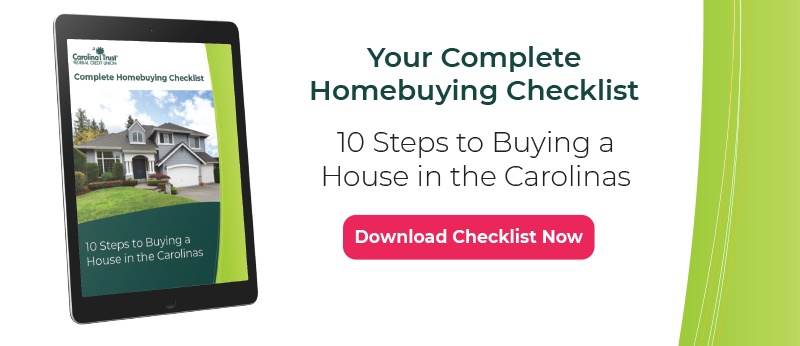Whether you plan to one day purchase your home or are already shopping around your local housing market, buying a home is a monumental step. It's a decision you want to get right because making the wrong choice when buying a home can cost you big time. Make the best decisions with your first or next mortgage loan by putting these home-buying myths to rest before you sign loan documents.
14 of the Most Common Misconceptions about Buying a Home
1. You Need Impeccable Credit
A perfect credit score will help you access the best interest rates, but spotless credit history isn't necessary for qualification. Most lenders require a credit score of at least 640 for a borrower to qualify for a conventional or USDA mortgage loan. Speak with a knowledgeable mortgage lender or local credit counselor for advice on improving your credit and to determine the best type of home loan for you.
2. You Need at Least 20% Down Payment to Buy a Home
Twenty percent is a fairly standard down payment requirement for conventional mortgages, and the more you can put down on a home the better chance you have of qualifying, accessing lower interest rates, and saving money in interest payments. However, twenty percent (or more) of the price of a home, however, is a big number. If you are unable to save that much, you can often times still qualify for a home loan. Also, neither VA nor USDA-backed loans require down payments, while FHA loan requirements vary from 3.5% to 10% down.
3. The Down Payment Is the Only Cash You Need Up Front
Do not sink all of your cash into your down payment. You will also need to cover closing costs, which usually include an initial escrow payment, origination fees, recording fees, title fees, and more.
4. Buying a Home is Always a Good Investment
Real estate values tend to increase over time, but lots of factors determine whether you should consider buying a home an investment, such as the local housing market and how long you plan to stay. Be sure you pay a fair price and plan to remain in your home for at least years, which should be enough time to recuperate real estate commissions.
5. Not Using a Real Estate Agent Saves Money
Most realtors make a 3% commission on the sale of a house. Buyers pay this fee, and it is usually built into the listed price of a home. The mortgage process is complicated, involves lots of paperwork, and requires expert-level negotiation as well as access to industry information, such as comparable sales. Having an experienced, reputable real estate agent will end up saving you time, money, and stress throughout the process.
6. You Should Find a House Before Applying for a Home Loan
 Depending on your housing market's conditions, purchasing a home could be a fierce competition, as you race to put in your offer before other buyers. Applying for your home loan before shopping for a house will not only ensure you know the price range you are qualified for, but also ensures you can put money down and sign a buy sell agreement with confidence that your loan will go through.
Depending on your housing market's conditions, purchasing a home could be a fierce competition, as you race to put in your offer before other buyers. Applying for your home loan before shopping for a house will not only ensure you know the price range you are qualified for, but also ensures you can put money down and sign a buy sell agreement with confidence that your loan will go through.
7. Prequalification Fast-Tracks the Process
Prequalification does not put your mortgage loan on the fast-track, but it helps you while shopping for a home. You will know the exact amount you are qualified to spend, and you will also be able to put money down on a home buy/sell agreement without waiting on approval. You can use the time during prequalification to prepare everything you will need for your mortgage application (copies of tax returns and recent pay stubs). Once you find the right property, you will complete a mortgage application, and your lender begin the mortgage loan process.
8. You Should Spend the Amount for Which You Qualify
Qualifying for a $500,000 mortgage doesn't mean you should spend $500,000. Take the time to really consider your budget and home loan estimates, which outline estimates of monthly payments and loan costs. Consider how much money you will have left in your monthly income to handle major repairs as they come about, purchase furniture, and save for emergencies or vacations.
Purchasing a house at the top of your budget can put you in a financial bind down the road.
9. Buying a Home Will Get You a Big Tax Break
People often look to take out a large mortgage, thinking they will benefit from major tax deductions. However, there are limits to how much the IRS allows individuals, married couples filing jointing, and heads of household to deduct.
In 2019, the limit was set for interest on qualifying mortgages with a principal balance of up to $750,000. To really benefit from tax deductions on mortgage interest, you have to pay more than the standard deduction annually. When it comes to mortgage interest deductions, don't count your chickens before they hatch. Speak with an experienced tax accountant to determine the amount you would be able to deduct.
10. Fixer-Uppers Cost Less
Unless you are experienced enough to handle most repairs yourself, fixer-uppers can wind up costing you big-time in the long-run. Be sure you know exactly what you're getting yourself into, with a thorough home inspection, before buying a home in need of more love than your wallet can handle.
11. Appraisals Aren't Required for New Home Buying
An independent, professional appraisal is required for almost every home loan. Your lender will order the appraisal from a licensed, unbiased professional to ensure accurate and thorough valuation.
12. You Should Avoid Adjustable Rate Mortgages
Sometimes an adjustable rate mortgage is actually the smartest choice for a home loan. These loans typically feature an initial low introductory interest rate, which will then periodically adjust according to a predetermined schedule and base rate.
Adjustable rate mortgages are commonly referred to as ARMs. An adjustable rate mortgage set to adjust interest every five years is called a 5-year ARM. If you plan to sell or pay off your home before the end of the introductory period, you could save money on interest.
13. Online Real Estate Value Estimates Are Accurate
Although some online tools can be useful, most of these value estimates are inaccurate, leading buyers to unintentionally make insultingly low offers to sellers. One study compared Zillow's ‘Zestimates’ to the actual value of homes in Rochester, NY. The study found that, on average, online estimates rang in $18,000 below actual sale prices. Working with an experienced, reputable real estate agent who has access to comparable sales in your area will help you determine actual, current sales prices for homes.
14. Your Monthly Mortgage Payment Will Always Be the Same Amount
The total amount you pay monthly toward your mortgage can fluctuate, up or down, throughout the life of your mortgage loan. Payments change due to adjustable interest rates, changing tax rates and homeowner's insurance premiums, and due to mortgage insurance premiums.







